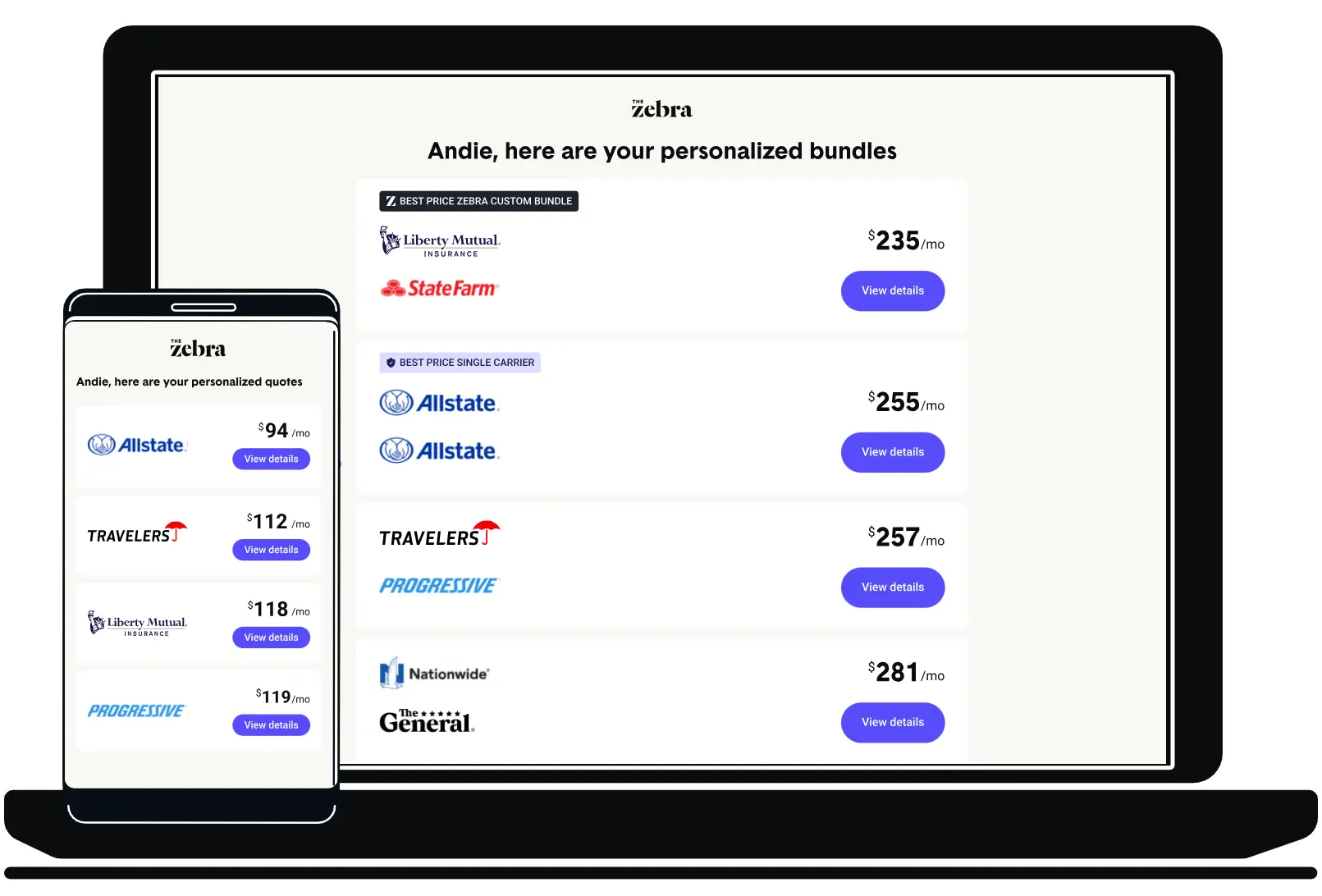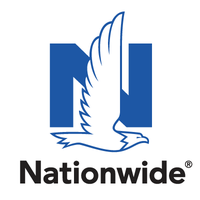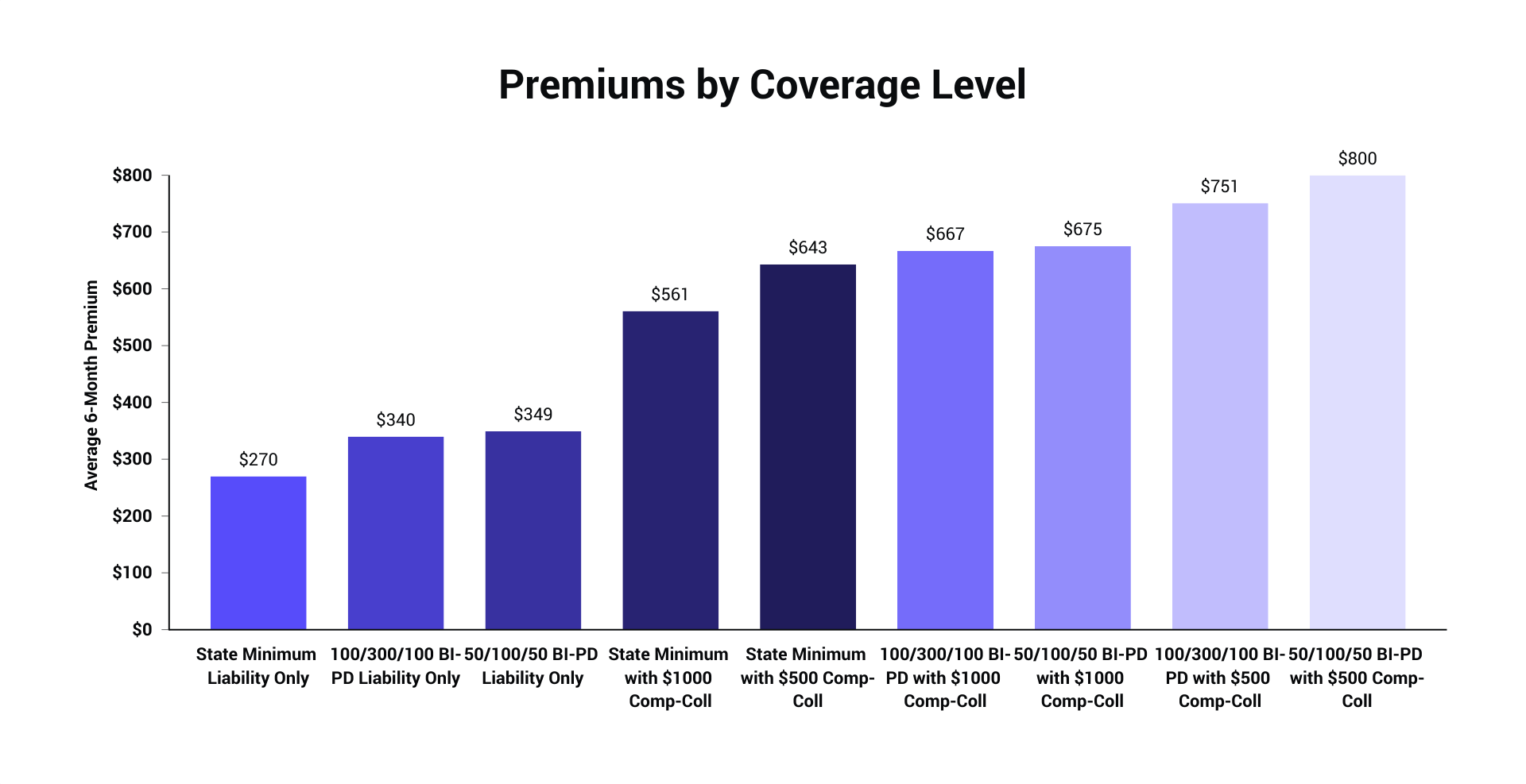Cheap Full Coverage Car Insurance
- Get cheap full coverage car insurance from GEICO, Progressive, Liberty Mutual and more.
- No sales pitch. No spam calls. No junk mail.





The cheapest companies for full coverage car insurance
The average cost of full coverage car insurance is $147 per month, as of 2024. According to our analysis, Travelers offers the cheapest full coverage insurance at an average of $112 per month. Take a look at other cheap full coverage options below.
Travelers' full coverage averages $112 per month for comprehensive and collision coverages.

USAA full coverage averages $114 per month for comprehensive and collision coverages.

Nationwide full coverage comes in slightly higher at $123 per month, on average.
Key takeaways
- Travelers offers the cheapest full coverage on average at $112 per month
- Full coverage is a generic term for a policy with comprehensive, collision, and higher liability limits
- Carrying full coverage can cost up to double the amount of a liability-only policy
- Full coverage is required for drivers of leased or financed vehicles but encouraged for vehicles worth more than $4,000 or with high-risk drivers
- 70% of The Zebra’s customers insure a vehicle with full coverage
How much does full coverage car insurance cost?
On average, full coverage auto insurance comes in at around $147 per month, assuming liability coverage limits of 50/100/50. If you're considering upgrading from a liability-only policy to a full coverage plan (with $500 collision and comprehensive deductibles) you can expect your monthly auto insurance premium to go up by approximately $88.
While your state may only require liability coverage, we highly recommend considering additional coverage options to safeguard both you and your valuable assets. It's worth noting that a whopping 70% of The Zebra's customers choose to go with full coverage when they purchase a policy. Take a look at the tables below to get an idea of what the average costs of minimum coverage and full coverage cost per month.
| Coverage | Avg. Monthly Premium |
|---|---|
| Full Coverage | $142 |
| Liability Only | $59 |
| Company | Avg. Monthly Premium |
|---|---|
| Travelers | $112 |
| USAA | $114 |
| Nationwide | $123 |
| GEICO | $129 |
| American Family | $131 |
| State Farm | $131 |
| Farmers | $149 |
| Progressive | $157 |
| Allstate | $201 |
The Zebra’s Dynamic Insurance Rating Tool data methodology
The Zebra’s Dynamic Insurance Rating Tool for home and auto insurance rates utilizes the latest ZIP code-level rate filings from across the U.S., sourced from Quadrant Information Services and S&P Global. These filings, typically updated annually or biennially by insurers, are verified through Quadrant’s QA process and then integrated into The Zebra’s estimator.
The displayed rates are based on a dynamic home and auto profile designed to reflect the content of the page. This profile is tailored to match specific factors such as age, location, and coverage level, which are adjusted based on the page content to show how these variables can impact premiums.
For a comprehensive understanding, see our detailed methodology.
Zebra Tip: Look for insurers with good customer satisfaction ratings
Remember that the cheapest full coverage may not always be the best option. Take a look at the 2024 results of The Zebra Customer Satisfaction Survey to see which companies deliver the highest levels of service and satisfaction to their customers. We've provided a brief overview of the top contenders below.
How to find the best full coverage car insurance
Discovering budget-friendly full coverage car insurance can be a straightforward process when you invest some time in comparing rates from different insurance providers. Based on our rate analysis, Travelers and USAA are top choices for those looking to save. But don't stop there — a wide array of insurance companies are ready to offer you full coverage plans. Certain companies might be a better fit than others, though, depending on your needs.
To begin your search on the right foot, let's look at some of the top-rated options for full coverage based on specific priorities.
The Best Full Coverage Car Insurers

While USAA is only available to military members and their families, this company is renowned for its customer service and came in first place for auto insurance in The Zebra's customer satisfaction survey. We also found it has the second-cheapest average rate for full coverage.

Erie is a regional insurance company that serves the Northeast and Midwest, but it could be a great option if it's available for you. While finding affordable car insurance for teen drivers is always a challenge, our data indicates Erie is cheaper than many of its competitors. The company also has a great reputation for good customer service, coming in seventh place in The Zebra's customer satisfaction survey for auto insurance.

With coverage available in every state, State Farm came in first place for claim satisfaction in our customer satisfaction survey. For those who prefer personalized service, State Farm also has local agents available to help you with your car insurance policy.
Get full coverage car insurance quotes in minutes.
What exactly is full coverage car insurance?
The term 'full coverage' might seem a bit confusing, as it encompasses different types of coverage, including comprehensive, collision, and higher liability limits. For most folks, full coverage insurance is all about safeguarding your vehicle and providing coverage for injuries and property damage.
When you're on the hunt for full coverage auto insurance quotes, remember that 'full coverage' essentially combines two types of physical damage coverage: comprehensive and collision coverage. These two, along with the mandatory liability coverage as per your state, make up a comprehensive full coverage car insurance policy.
| Comprehensive Insurance | Collision Insurance | Liability Insurance | |
|---|---|---|---|
| Coverage | Covers damages to your vehicle caused by incidents other than collisions (e.g. theft, vandalism, natural disasters, fire, falling objects, animal damage or collision, civil disturbances). | Covers damages to your vehicle resulting from a collision with another vehicle, an (e.g. a tree, guardrail, or pole), or if your car rolls over*. | Covers the costs of damages and injuries you cause to other drivers, passengers, and property owners when you’re in an at-fault accident (e.g. medical bills, lost wages, property replacement) |
| Typical Deductible | $500-$1,000 | $500-$1,000 | $0 (typically covered up to your chosen policy limit) |
| Risk of Rate Increase After Filing a Claim | Low. Many auto insurance companies don't view comprehensive claims as a result of driver error. | High. Most collision claims are seen as at-fault accidents. Rate penalties can last three to five years | High. Most liability claims occur when you’re at fault in an accident. Rate penalties can last up to three years. |
*If you have uninsured motorist coverage on your policy, you can use the property damage portion of this coverage rather than collision. We recommend you carry uninsured/underinsured motorist coverage to cover collisions involving uninsured drivers.
Check out The Zebra's video on full coverage car insurance (below) to learn more.
What full coverage doesn't cover
While 'full coverage' might sound like it covers everything, it usually includes collision and comprehensive coverage. Our experts recommend maintaining higher liability limits for bodily injury and property damage coverage to make sure you're fully protected.
You may also want to consider adding optional coverages that can offer extra protection for both you and your vehicle. For instance, personal injury protection may be required in no-fault states, but is worth considering even if it's not mandatory where you live.
Below you'll find a selection of other types of car insurance that are typically available from most insurers that may go further in providing "full coverage."
Zebra Tip: Get more than just the bare minimum coverage
While full coverage mostly entails having a policy with comprehensive and collision coverages, don't neglect to increase your liability limits above the state minimum. A true "full coverage" policy will also have bodily injury and property damage liability limits that are high enough to provide adequate protection should you cause serious injury or property damage in an accident.
Is full coverage auto insurance required?
Unlike liability coverage, full coverage isn't legally required by states. However, full coverage insurance is likely a requirement by your lender if you are leasing or financing a vehicle.
We recommend carrying full coverage if your vehicle is worth more than $4,000, if your vehicle will eventually be resold, or if the drivers of your vehicle are younger, less experienced or have a history of accidents. See the list below for more details.
Full coverage is typically required if you're leasing or financing a vehicle, and our data shows that around 41% of drivers fully own their vehicles. If you don't own the vehicle outright then ensuring comprehensive protection is essential. Lenders often mandate full coverage to safeguard their investment, sometimes referred to as "force-placed" or "collateral protection" insurance.

If your vehicle is worth more than $4,000, insurance experts suggest carrying full coverage. To determine your vehicle's value, you can use resources like Kelley Blue Book or NADA online. Full coverage is designed to protect your car. However, if your vehicle isn't worth much, full coverage might not be the most cost-effective choice, especially if you have a substantial emergency fund that can cover potential damages or replacement costs.
If the vehicle will be resold in the future, full coverage insurance is a wise investment. If the vehicle were totaled — either in a collision or in adverse weather — the insured party would have no recourse.

While age doesn't always determine driving skills, young drivers and teens might benefit from adding collision coverage. Similarly, if you have a history of accidents, full coverage insurance can provide valuable financial protection from potential future accidents. Again, vehicle value plays a role; if the car isn't worth much, full coverage might not be necessary.
Zebra tip: Consider gap insurance for leased or financed vehicles
Gap insurance comes into play when there's a gap between the value of your totaled vehicle and what you still owe on a loan. It's particularly useful for newer or high-value vehicles. To have gap coverage, you typically need both collision and comprehensive coverage. If you're leasing a vehicle, it might be included in your lease agreement, but it's crucial to confirm that your insurance covers it.
Is full coverage more expensive than the state minimum required coverage?
Yes, full coverage will likely be more expensive. By boosting your coverage from the minimum amount to add collision and comprehensive insurance, expect to pay over double what you were paying for just the state-required minimum amount of liability insurance.
This disparity in pricing is less apparent if you already carry comp and collision coverage. Whether you have a $500 or $1,000 deductible, the difference in premium between coverage levels maxes out at about 15%.

Insurance rate comparison
If you're looking to save the most on full coverage, consider lowering your liability limits to your state's minimum required amount to offset the cost of comp and collision. According to our data, USAA is the cheapest car insurance company for this level of coverage, with GEICO coming in second. These values are estimates. Keep in mind: your location, vehicle, age, and driving record will impact your car insurance rate. Use The Zebra to instantly find the cheapest car insurance for you, online.
| Company | Full Coverage | Liability-only |
|---|---|---|
| Allstate | $201 | $61 |
| American Family | $131 | $55 |
| Farmers | $149 | $60 |
| GEICO | $129 | $38 |
| Liberty Mutual | $143 | $52 |
| Nationwide | $123 | $50 |
| Progressive | $157 | $58 |
| State Farm | $131 | $49 |
| Travelers | $112 | $41 |
| USAA | $114 | $36 |
State-by-state cost analysis
Below are the average monthly premiums for basic liability coverage versus full coverage.
In this instance, full coverage refers to 50/100/50 liability limits and comprehensive and collision deductibles at $500 each — a fairly typical coverage level in the U.S.
Find the best full coverage insurance policy in just a few minutes.
Full coverage insurance FAQs
Related content
- Does Car Insurance Cover Natural Disasters?
- Does Car Insurance Cover Windshield Repair?
- What is Liability Car Insurance?
- Pets and Car Insurance
- What is Car Storage Insurance?
- Car Insurance After Identity Theft
- Total Loss Car Insurance
- Stacked vs. Unstacked Car Insurance
- Roadside Assistance vs. AAA
- Car Insurance for Road Trips
Protect your car with the right coverage at the best value.
RECENT QUESTIONS
Other people are also asking...
Do I need gap insurance if I have full coverage?
What's the difference between collision and liability, versus full coverage?
About The Zebra
The Zebra is not an insurance company. We publish data-backed, expert-reviewed resources to help consumers make more informed insurance decisions.
- The Zebra’s insurance content is written and reviewed for accuracy by licensed insurance agents.
- The Zebra’s insurance editorial content is not subject to review or alteration by insurance companies or partners.
- The Zebra’s editorial team operates independently of the company’s partnerships and commercialization interests, publishing unbiased information for consumer benefit.
- The auto insurance rates published on The Zebra’s pages are based on a comprehensive analysis of car insurance pricing data, evaluating more than 83 million insurance rates from across the United States.


